



Charles J. Shields is the author of two books about critically acclaimed author, Harper Lee, written for the young adult audience. The former English teacher proffers a unique understanding for Harper Lee the person, and offers a nuanced appreciation for her iconic novel, "To Kill a Mockingbird."
Mr. Shields spent four years researching and writing "Mockingbird: A Portrait of Harper Lee," published in 2007. His portrayal earned critical acclaim, and established Mr. Shields' literary credibility. The new author's achievement is exalted by the fact that Ms. Lee was unwilling to participate in the project, rejecting his request for an interview. It should be noted that she had not granted an interview since 1964. Nevertheless, he went on to publish his second book on the same subject, "I Am a Scout: A Biography of Harper" in 2008.
Harper Lee's rebuff forced Mr. Shields to rely on exhaustive background work to ensure accuracy. He conducted more than 600 interviews to fill the void left by the reclusive Lee. The daunting list of contributors includes Harper Lee's neighbors, childhood friends, and law school classmates. Notably Kansas residents, who Lee met while working as research assistant to childhood friend Truman Capote on "In Cold Blood," proved to be a valuable source. They validated the speculation about her collaborative role in Capote's success, and offered some explanation as to how an unknown writer could catapult into iconic stardom.
Mr. Shields has a B.A. in English and an M.A. in American history from the University of Illinois, Champaign-Urbana, where he was a James Scholar.
E.I. Would you share some early insight into who you were as a teenager? What were you like? Please tell us more about Charles Shields -- the man behind the former English teacher and now a critically acclaimed author of Harper Lee’s biography & life.
CJS I decided at fifteen that I wanted to be a writer. It was an actual statement I said out loud, in answer to a friend asking me, “What are you going to do after high school?” (We were playing soccer: strange time to be asked about career plans.) And I said, “I want to be a teacher and a writer.” Because I said it without hesitation, I realized I meant it. And besides, whenever I dawdled in front of racks of paperback books I thought nothing would make me happier than to have a book of my own.
I was a loner as a teenager, but well-liked. I still enjoy being alone. I can’t imagine being an extrovert and a writer, too. The two don’t seem compatible.
E.I. What is it about the art form of writing that enchants you the most?
CJS I enjoy imagining my reader. I work as hard as I can to entertain, surprise, inform, and delight him or her.
E.I. How do you imagine the audience when you are writing? Do you have sheets of newsprint covered in a story boards all over your walls?
CJS No, I tried that and it didn’t work for me. For the book I’m currently writing, the first biography of Kurt Vonnegut, I’ve kept my study practically paperless. First, I scanned absolutely every document, article, dissertation, and letter; then placed each file into desktop folders by topic; then created extremely detailed, chronological outlines. Using the Spotlight feature on my MacBook Pro allows me to find any word or phrase I’m want to add to the outline. Considering that I have 1500 letters— not to mention the hundreds of book reviews and interviews with Kurt I’ve collected (I also interviewed 125 people myself)— being able to locate a term or a name instantly is like having a genie helping me.
E.I. What was your biggest challenge in writing “Mockingbird: A Portrait of Harper Lee”? How many years of research did you do, and how did you decide what level of details your reader will accept? Did you work them out in advance, or did they evolve as you wrote the story? How did you overcome these challenges?
CSJ Miss Lee not only refused to allow me to interview her, she also called friends and asked them not to speak to me. Instead of feeling discouraged, I felt more determined when I found that out. I spent two years researching the book and two years writing it. I never had the opportunity to choose how many details my reader would accept; it was a struggle trying to find enough. But remember, a biography is not an obituary, which is just a list of facts written as prose. It needs all the elements of fiction: setting, exposition, description, scenes, reversals, character. So when I was stuck for details, I turned to some other aspect of storytelling.
E.I. In your book “I Am Scout”, how much of Harper Lee is planned out in your head? How do you know where you will go next with your story based on your research?
CSJ The chronology of a person’s life drives a biography, of course. But then you have to structure the chapters by deciding what needs to be explained clearly, logically, and a little slowly in each one. “What point am I trying to make about her?” you keep asking yourself. There has to be a sense of development.
E.I. If you were asked to read a page from “I AM Scout” is there one that you would personally select to share with your fans? And why?
CSJ The page I think about the most is the first one when Lee is pulling other kids off Truman during a playground fight. I think about it because if I don’t hook the reader immediately, I’ll lose him or her. So the beginnings of both I Am Scout and Mockingbird haunt me in a sense.
E.I. Why do you think Ms. Lee refuses to give interviews or talk about the novel that made her a household name? Was it to avoid topics pertaining to Truman’s Capote or just to keep her privacy?
CSJ Miss Lee is tired of talking about her only published novel and of resisting the pressure to produce another one. She doesn’t have a career she can converse about like Mailer, or Updike or Joyce Carol Oates so to her, it’s a dead issue.
E.I. What did you find to be the hardest part of writing both books? Was it the research or frustration with people who were uncooperative?
CSJ The hardest part is watching the seasons change outside my window and having to accept that I spend most days in a room, doing something that comparatively few people understand.
E.I. You are well known in the writing community as the former teacher and the New York Time bestseller of your books. Do you ever feel pressure or insecure, or are you able to separate all that from your own creative process?
CSJ Writing is my reason to be. I don’t have a choice except to go on writing, so feeling insecure, etc. doesn’t factor in.
E.I. What would you tell those authors considering applying to an M.F.A. program? In your opinion how important is it for a writer to have a writing degree?
CSJ Aristotle said, “Anything that we have to learn to do we learn by the actual doing of it... We become just by doing just acts, temperate by doing temperate ones, brave by doing brave ones.” I believe that applies to writing, too. You have to do it; not be taught to do it when you’re old enough to be a graduate student. So no, I’m not in favor of MFA programs. Read Wayne C. Booth’s The Rhetoric of Fiction; Francine Prose’s Reading Like a Writer; or James N. Frey’s How to Write a Damn Good Novel. Then go and do likewise. And read deeply in the genre you want to practice whether it’s playwriting, fiction, or nonfiction. Read with a pencil in hand. Underline; make notes.
E.I. The media has it that you are writing about the first biography of author Kurt Vonnegut which will be published in 2010. Are you excited about being the first one to write his biography? How many years of research have you done?
CSJ I met Kurt and interviewed him on and off for six months before his death. He passed away in April 2007. So I’ve been researching and writing for about two-and-a-half years now. This book is the best work I’ve done so far.
E.I. Mr. Shields, Thank you for contributing to my blog. It has been a pleasure for me to get to know your work a little better. Would you like to end your interview with a writing tip or advice for young aspiring writers?
CSJ Start referring to yourself as a writer. Say it in conversation. People may act skeptical; they do even when I say it. Some ask me, “Yes, but what do you DO?” Never mind. Anything artistic endeavor is mysterious. That’s part of the excitement. Say you’re a writer and push off with the Argonauts to explore places unknown. Pen and paper will take your there.
Charles Shields photo (B/W) by Michael Bailey
Mr. Shields (Study) by Guadalupe Shields
To learn more about Charles Shields please visit his WEBSITE
To purchase his books please visit AMAZON and Barnes & Noble

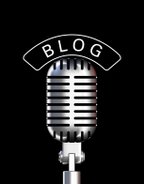





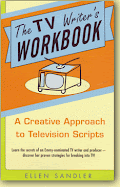



.png)


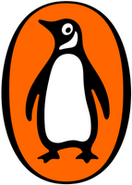
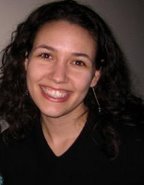
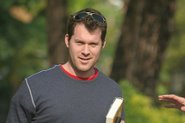

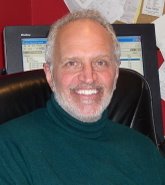
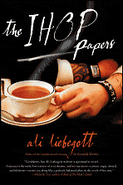
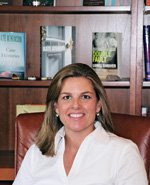
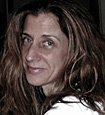
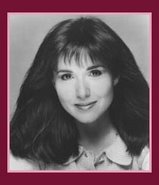
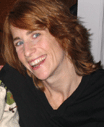


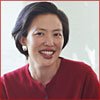


No comments:
Post a Comment